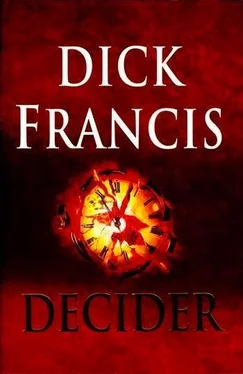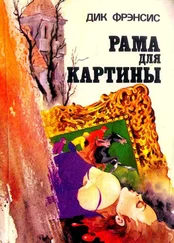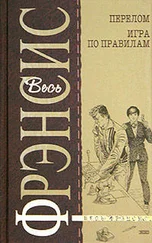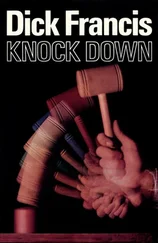Parts of the roof far above were missing. Along the west side the timbers all leaned drunkenly at wild angles, their supports wholly weathered away. A rusted abandoned tractor and heaps of other assorted junk lay among saplings struggling up from the cracked concrete floor. A stiff breeze blew through the tangled desolation, unfriendly and cold.
I’d seen almost at once what could be built within there, almost as if the design had been hovering for a long time in my mind, awaiting life. It would be a house for children. Not necessarily for my own children, but for any. For the child I’d been. A house with many rooms, with surprises, with hiding places.
The boys had hated the place at first and Amanda, heavily pregnant, had burst into tears, but the local planners had been helpful and the landowner had sold me the barn with a surrounding acre of land as if he couldn’t believe his luck. When each son found he would be having a separate bedroom as a domain all his own, the objections miraculously ceased.
I’d brought in a conservationist to check the oak. A superb old specimen, he’d said. Three hundred years in the growing. It would outlive us all, he said; and its timeless strength seemed to give me peace.
Amanda repeated, ‘What made you decide?’
I said ‘The oak.’
‘What?’
‘Common sense,’ I said, which satisfied her.
On Wednesday I received two direction-changing letters. The first, from an Oxford District Council, turned down my third application for planning permission for restoring the mansion with the beech tree growing in its drawing room. I telephoned to discover why, as I’d understood the third plan had met with their unofficial approval. They now were of the opinion, a repressive voice told me, that the mansion should be restored as one dwelling, not divided into four smaller houses, as I’d suggested. Perhaps I would care to submit revised plans. Sorry, I said. Forget it. I phoned the mansion’s owner to say I was no longer a potential buyer, sending him into predictable orbital rage: but no planning permission, no sale, had been our firm agreement.
Sighing, I disconnected and dropped three months’ work into the wastepaper basket. Back, literally, to the drawing-board.
The second letter came from solicitors acting for the Stratton family, inviting me to a Stratton Park shareholders’ extraordinary meeting the following week.
I phoned the solicitors. ‘Do they expect me to go?’ I asked.
‘I don’t know, Mr Morris. But as you are a shareholder, they were required to alert you to the meeting.’
‘What do you think?’
‘Entirely your decision, Mr Morris.’
The voice was cautious and non-committal, no help at all.
I asked if I held voting shares.
‘Yes, you do. Each share has one vote.’
On Friday I did the end-of-term school run, collecting the boys for their Easter break: Christopher, Toby, Edward, Alan and Neil.
What, they wanted to know, had I planned for their holidays?
‘Tomorrow,’ I said calmly, ‘we go to the races.’
‘Motor?’ Christopher asked hopefully.
‘Horses.’
They made vomiting noises.
‘And next week... a ruin hunt,’ I said.
Deafening disapproval lasted all the way home.
‘If I don’t find another nice ramshackle ruin, we’ll have to sell this house after all,’ I said, pulling up outside. ‘Take your pick.’
Sobered, they grumbled, ‘Why can’t you get a proper job?’ which I took as it was meant, resigned acceptance of the programme ahead. I’d always told them where the money came from for food and clothes and bicycles and because they’d suffered no serious shortage they had inexhaustible faith in ruins, and were apt to point them out to me unprompted.
Since the thumbs-down letter on the mansion, I’d checked through the file of replies I’d had to an advertisement I’d run in the Spectator three months earlier:
‘Wanted, an uninhabitable building. Anything from castle to cowshed considered.’
I enquired of several interesting propositions to see if any were still available. As, owing to a recent severe slump in property prices, it seemed they all were, I promised an inspection and made a list.
I hardly admitted to myself that the uninhabitable buildings niggling away on the fringes of my mind were the grandstands at Stratton Park.
Only I knew the debt I owed to the third baron.
It rained on Stratton Park’s steeplechase meeting, but my five elder sons — Christopher, fourteen, to Neil, seven — grumbled not so much about the weather as about having to wear tidy, unobtrusive clothing on a Saturday. Toby, twelve, the rider of the red bicycle, had tried to avoid the trip altogether, but Amanda had packed him firmly into the mini-van with the others, providing a picnic of Coca-Cola and ham omelettes in burger buns, which we dealt with in the car park on arrival.
‘OK, ground rules,’ I said, collecting the wrappings into a single bag. ‘First, no running about and banging into people. Second, Christopher looks after Alan, Toby takes Edward, Neil goes with me. Third, when we’ve chosen a rallying point, everyone turns up there immediately after each race.’
They nodded. The family crowd control measures were long established and well understood. The regular head counts reassured them rather than irked.
‘Fourth,’ I went on, ‘you don’t walk behind horses as they’re apt to kick, and fifth, notwithstanding the classless society, you’ll get on very well on a racecourse if you call every man “sir”.’
‘Sir, sir,’ Alan said, grinning, ‘I want to pee, sir.’
I trooped them in through the gates and acquired Club enclosure tickets all round. The white pasteboard badges fluttered on cords from the sliders of the zips on five blue-hooded anoraks. The five young faces looked serious and well intentioned, even Toby’s, and I went through a rare moment of being both fond and proud of my children.
The rallying point was established under shelter not far from the winner’s unsaddling enclosure and within sight of the gents. We then went all together through the entrance gate into the Club itself and round to the front of the stands and, once I was sure they all had the hang of the whereabouts, I let the paired elder ones go off on their own. Neil, brainy but timid when not in a crowd of brothers, slid his hand quietly into mine and left it there as if absentmindedly, transferring his hold to my trousers occasionally but running no risk of getting lost.
For Neil, as for imaginative Edward, getting lost was the ultimate nightmare. For Alan, it was a laughing matter; for Toby, an objective. Christopher, self-contained, never lost his bearings and habitually found his parents, rather than vice versa.
Neil, easy child, made no objection to walking around in the stands instead of going to see the horses currently plodding wetly round the parade ring before the first race. (‘What are the stands, Dad?’ ‘All those buildings.’) Neil’s agile little brain soaked up vocabulary and impressions like a sponge, and I’d grown accustomed to hearing observations from him that I would hardly have expected from adults.
We popped our heads into a bar that in spite of the rain was uncrowded, and Neil, wrinkling his nose, said he didn’t like the smell in there.
‘It’s beer,’ I said.
‘No, it smells like that pub we lived in before the barn, like it smelled when we first went there, before you changed it.’
I looked down at him thoughtfully. I’d reconstructed an ancient, unsuccessful and dying inn and turned its sporadic trade into a flood. There had been many factors — reorganised ground plan, colours, lighting, air management, car parks. I’d deliberately added smells, chiefly of bread baking, but I didn’t know what I’d taken away, beyond stale beer and old smoke.
Читать дальше




